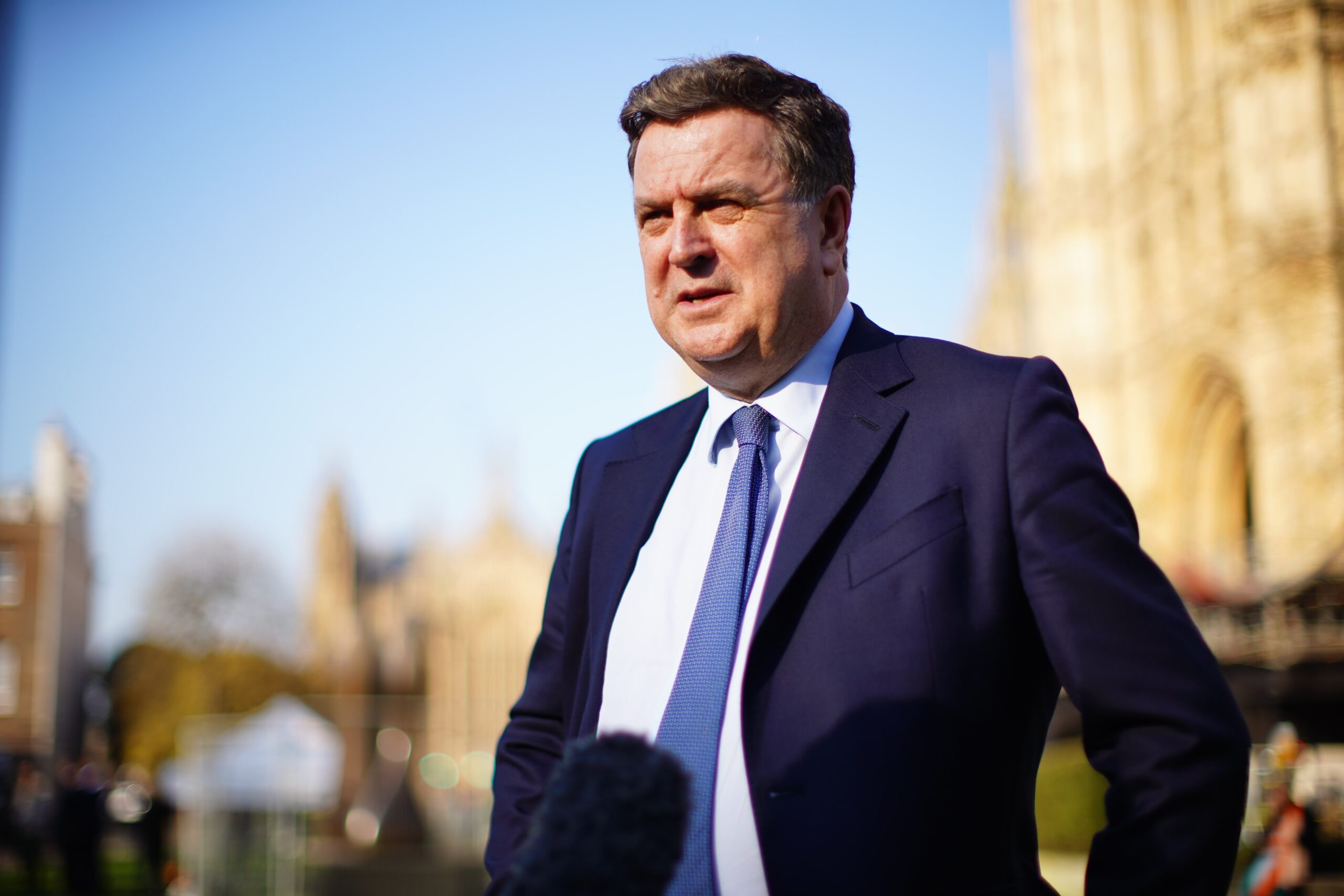The Conservatives would give young homebuyers a £5,000 national insurance rebate to help with their first house purchase as part of a plan to “reward work”.
In a bid to win over younger voters, shadow chancellor Sir Mel Stride will use his conference speech to announce the “first-job bonus”.
His plan will see national insurance payments initially diverted into a savings account, which can then be drawn upon when purchasing a property, The Times reported.
The Tories claimed it would help 600,000 people per year, with the £2.8bn cost funded by a wider plan to cut the benefits bill and bar foreigners from receiving welfare payments.

In his speech, Sir Mel will say: “When we deliver the urgent change that is needed to stop young people going straight from school to a life on benefits, we will use those reforms to fund tax cuts which are laser-focused on aspiring young people.
“Helping people to buy a home, build a family, save for the future. That is the Conservative dream. A dream that built my life. It is why I stand before you today, and I’ll fight every single day to make sure that that dream is burning bright for younger people and for the generations to come.
“Opportunity, aspiration, optimism. We are the party of hope. We are the party of the future.”
Government minister Miatta Fahnbulleh dismissed Sir Mel’s plans as “unserious”.
The communities minister told Times Radio: “I struggle to take anything the Tories say seriously.
“They had 14 years in power and in that time they categorically failed to deal with the housing crisis. They broke every aspect of our public realm.
“So, they can chuck out any ideas that they like. They had their shot and they absolutely messed it up.”
The Conservatives have promised to save £47bn of taxpayers’ money with a series of cuts to welfare, foreign aid, and social housing if they return to government at the next election.
Sir Mel will say the country cannot “keep spending money we simply do not have”.

A substantial £23bn of these savings is projected to originate from welfare reforms. These include plans to replace payments for individuals with “low level” mental health conditions with treatment programmes, alongside measures to bar non-citizens from claiming state support.
Additionally, Sir Mel is set to commit his party to reversing any potential changes to the two-child benefit cap, a policy widely anticipated to face abolition in next month’s Budget.
Promising to “never, ever make fiscal commitments without spelling out exactly how they will be paid for”, Sir Mel will say: “We’re the only party that gets it. The only party that will stand up for fiscal responsibility.
“We must get on top of government spending. We cannot deliver stability unless we live within our means.”
He will commit his party to cutting civil service numbers by around a quarter, saving £8bn, and reducing aid spending by £7bn to 0.1 per cent of national income.
Under David Cameron, the Tories introduced a target of spending 0.7 per cent of national income on overseas aid, which was reduced to 0.5 per cent following the pandemic and then cut again by the current Labour government to 0.3 per cent to pay for greater defence spending.
The Conservatives will also pledge to reduce spending on social housing, arguing there will be less demand for it once non-citizens are barred from receiving council accommodation.
Having vowed to repeal the Climate Change Act, Sir Mel will also set out plans to reduce green spending, including subsidies for heat pumps and electric vehicles.
The proposals have been welcomed by the Institute for Economic Affairs (IEA), but the think tank warned they ignored the “elephant in the room” of age-related spending such as pensions.
Earlier this year, the Office for Budget Responsibility warned the pensions triple lock, which remains Conservative policy, would prove “unsustainable” in the longer term.
Tom Clougherty, IEA executive director, said: “Ultimately, no political party is going to be able to balance the books only by cutting things their supporters don’t like.
“Long-term fiscal sustainability requires that we engineer a different trajectory for spending on pensions, social care, and old-age healthcare. Without that, other cuts are likely to amount to running to stand still.”
